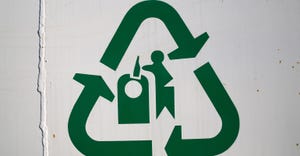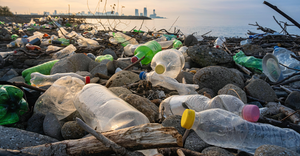Alternatives to extended producer responsibility (EPR) programs can achieve high recycling rates at a reasonable cost while addressing a wider range of the waste stream, according to a new study.
Mandatory EPR programs targeting food, beverage and consumer product packaging fall short of their promise to create more cost-effective residential recycling programs and drive packaging redesign, according to a news release on the study conducted by the consulting firm SAIC for the Washington-based Grocery Manufacturers Association (GMA).
SAIC studied EPR for packaging in Canada and Europe, as well as communities in the United States with high recycling rates. The study concluded that EPR doesn’t necessarily improve recycling rates, prompt changes in packaging design or selection, and doesn’t necessarily make waste and recycling systems more efficient.
"The food, beverage and consumer products industry is committed to environmental stewardship and reducing its impact on the environment," said Meghan Stasz, senior director of sustainability at GMA, at the Sustainable Packaging Forum in Pittsburgh. "As part of this commitment, America's food, beverage and consumer products industry is working to identify efficient, holistic waste reduction and recycling solutions that work for consumers and communities, and this analysis by SAIC tells us that EPR does not meet those standards."
About the Author(s)
You May Also Like


